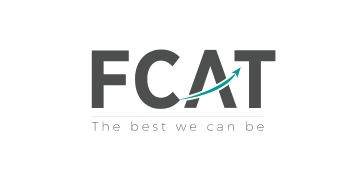It would be fair to say that Friday’s proposal by Universities Council for the Education of Teachers (UCET) that all teachers should undertake a Master’s Degree was met with a mixed response.
This is perhaps unsurprising in a system where teachers are being asked to do more and more, frequently with fewer resources; where there is a crisis in teacher workload and retention; and where many teachers feel a lack of trust and autonomy. In this context, the idea of being expected to complete a Master’s while working as a teacher feels an unrealistic demand on an already over-stretched profession.
There can also sometimes be a sense of a gap – or even a chasm – between what goes on in a university and in busy classrooms, leaving some teachers feeling that further academic study may have little relevance for their daily teaching practice; and whilst a whole host of benefits to Master’s level study can be identified, there isn’t compelling evidence to suggest that teachers with a Master’s are actually more effective teachers than those without.
But let’s take a step back and think about the principles behind the proposals: That teachers should have an entitlement to fully-funded development across their career as well as the time to undertake it; that this should include the option to study in their subject area rather than specifically education; that there should be an expectation that being a teacher means engaging in ongoing development; and that the expertise of the teaching profession should be recognised.
These ideas seem relatively uncontroversial. At the Chartered College of Teaching we are supportive, of course, of the idea that teachers should have an increased entitlement to high-quality CPD. We also believe there is value in increasing recognition of the expertise that teachers have, of the vast knowledge base and skills required to be an effective practitioner.
But there are many different ways these goals could be achieved – not just through an expectation of Master’s study – and any proposals in these areas would need to be very carefully implemented to avoid unintended (but entirely foreseeable) consequences, with teachers at the heart of developments.
There are many different ways these goals could be achieved
Firstly, teachers would need to have autonomy in whether they undertook further study, when in their career they chose to do this, and, critically, what the nature of this study should be. Those teachers who want to should have the support to pursue any of a range of sustained, substantial programmes aligned to their development needs, interests and career pathway; this could include, but not be limited to, one of the many wide-ranging academic or more practice-based Master’s programmes available, a leadership NPQ or one of the new specialist NPQs, or an advanced teacher certification such as our own Chartered Teacher Status.
Secondly, any move would need to be about entitlement to learning and development, rather than increasing the expectations on teachers – the same principle that underpinned work on the new Early Career Framework. This means that it’s critically important that not only is ongoing study for teachers funded, but that time is provided for it; in many cases, this will be a much greater challenge than the funding of the study programme itself.
Given the investment involved, a means of ensuring all teachers, regardless of location and setting, are able to select and access high-quality programmes will be an important part of this. We would also need to ensure progression opportunities are in place for our teachers – particularly into non-traditional leadership roles, and for practitioners who want to remain in the classroom and have their expertise as a practitioner recognised – which has further, substantial funding implications.
Finally, this would need to be a long-term commitment by the government, with a clear vision of the purpose for the profession. Rapid policy changes can lead to a lack of time for implementation, and impact won’t always be immediate. Of course, the ultimate aim is improved pupil outcomes – which is why in developing our Chartered Teacher programme we drew heavily on learning from National Board advanced teacher certification in the US, given the evidence to suggest that successful completion was correlated with greater teaching effectiveness.
But engaging in professional learning might also have an impact through the role it plays in in teacher job satisfaction, confidence, autonomy and retention. These in turn, will ultimately lead to a more effective teaching profession overall, and combined with more development and progression opportunities and increasing numbers of teachers with advanced qualifications and certifications, play a part in raising the status of the profession.








This is not new. In fact, New Labour launched this initiative nationally and it was promoted by UCL . Many teachers including myself took advantage of it. However, it was not my school that made me aware. What was even better, it was free and came with funding for projects and resources. Unfortunately, despite £12,000 being allocated to support me and my course, I was not able to spend a penny and it was swallowed up in the schools budget.
Advanced training is a welcome development that will meet the end of greater quality pupils, however it is a sacrifice on the side of the teacher, given so many reasons, but I think it’s a sacrifice worth the while because a good father who can go the extra mile to make his children have a better life, will always often do it, not minding, and we as teachers are like parents to these children. Whosoever can take advantage of this should go ahead.
(This is my own opinion on this article)